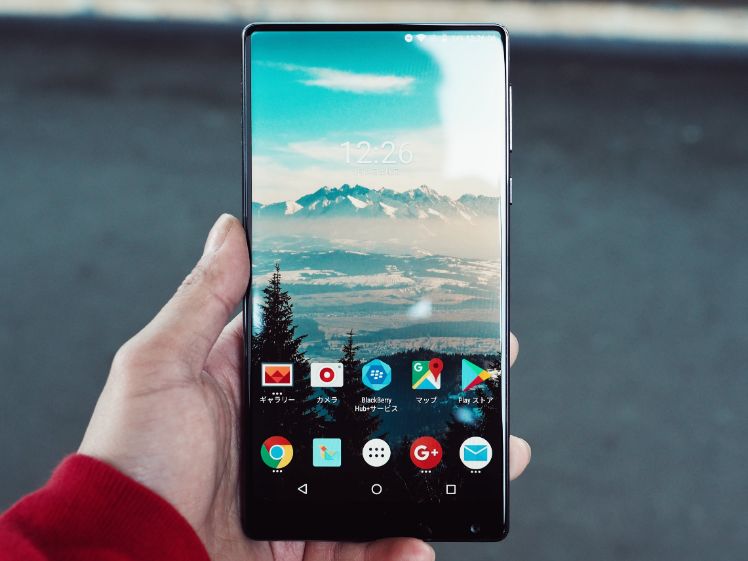When envisaging the creation of a mobile application you may be wondering if there are more options besides Android and iOS mobile app development. The answer is straightforward: of course, you can develop your app for other operating systems if you want. But are you sure of whether you should do it or not? We’ll be discussing which software used for mobile application development you should be considering. And why must you be considering them when creating a mobile app.
Operating systems in 2016
It’s best to refer to the data available, as it illustrates the current state of the mobile market objectively. According to Statista, the distribution of devices by the operating system in 2015 follows the same trend as in 2014.
This trend shows that − for instance − 78% of mobile devices in Spain have Android as their operating system. iOS comes in the second position with 18% of the mobile market share. At the other end of the most used operating systems list and in the clear minority we come across Windows (which has only 3% of the market share) and Symbian (with 2%) − barely exceeding jointly 5% of the market share.
Analysing global data draws similar conclusions. According to a worldwide study on the operating systems of mobile devices carried out by Statista, it’s estimated that 1.808 million devices are currently running on Android. iOS comes in second, with 463 million devices; and third comes Windows Phone, with approximately 45 million mobile devices. Only 19 million runs on Blackberry’s OS − which we could already consider as a forsaken OS − and 31 million devices are running on other minority operating systems.
Against this background, we can see that Android and iOS together encompass over 90% of the mobile market and are luring, as a result, most of the current mobile app development.
Android and iOS app development
As we have just been discussing, Android currently grasps the biggest market share. It’s a very widely used operating system, especially in Spain. This is largely due to the wide variety of low-cost devices available on the market that run on this OS.
However, on a global scale, there are countries like Japan where iOS’ market share exceeds that of Android. Or countries as the US, the UK or Australia, where Android and iOS are more or less evenly distributed over the mobile market.
In either case, the kind of app development you’re considering will always depend on the target audience you are going to address. And yes, Android and iOS are an unbeatable duo; if you create apps for these two operating systems you’ll be covering a great extent of the mobile market.
And what about developing apps for Windows Phone?
So, what about Windows Phone? Well, it’s best to forget about it. Our advice is to give priority to Android and iOS app development over Windows Phone − despite the latter being the third most important OS.
According to data coming from Kantar Worldpanel, only a couple of countries like France and Italy seem to show a little more interest in Windows Phone devices. Still, it’s always more profitable to take advantage of the current situation and put your eggs in the ‘basket’ of those operating systems that enjoy a higher market share.
Developing apps for minority operating systems is something that’s better to leave for later on. Once we’ve established ourselves in the Android and iOS markets we can start thinking about offering our app for Windows Phone, Symbian or Blackberry depending on our users’ requests.
What about working with just a single operating system?
Not all mobile app development projects have large budgets nor are extremely ambitious projects. Maybe the idea behind your app is more modest and you only want to offer it for a single operating system at first. But which one will you start with?
Mobile app development: Which platforms and operating systems should be addressed first?
There are some factors to consider before venturing into creating an app: we must first analyse our potential users, our market, etc.
- You probably already have a web-based business and want to take the leap into the mobile world. Analyse your visits in the first place. How many are coming from mobile devices? If these are very few, perhaps you should consider that developing a native application is not the best option. A web application might fit in very well for fulfilling your business’ needs. When, let’s say, around 70% of your visits come from mobile devices… take the leap! Always analyse which operating systems are your visits coming from (Are there more coming from Android or from iOS?) to focus on one or another when it comes to development.
- If you don’t have a web version and are going to take the leap directly into the app world, you will have to analyse your target user very well: age, sex, trends, devices he uses, return on investment, your mobile marketing strategy… In other words, you must establish a business plan in full before taking the leap into mobile app development.
You’ll need the help of many industry experts if this is the first time you are facing a challenge like creating a mobile app as a way to obtain revenue. We’ll help you get those mobile experts to carry out your project: developers, designers, mobile marketing experts, app store optimisation experts and app business model experts.
Related: Unveiling the Secrets of Mobile App Platforms: Best Platforms, Trends & More.
Ok, but where do I get started… Android or iOS?
By thinking a bit we stumble upon the logical conclusion that a higher market share translates into a higher amount of downloads, which means that your app should obtain more downloads if it has been developed for Android. But you should know that an APP’S LIFESPAN IS NOT GUARANTEED JUST BY OBTAINING DOWNLOADS. Obtaining plenty of downloads doesn’t guarantee your success and much less enjoying loyal users, revenue or even the return on your initial investment for developing the app.
The first thing to do is to pinpoint one main goal that you want to achieve with your mobile app. Even if having your app developed for Android means obtaining many more downloads, iOS is certainly the ideal operating system if generating revenue is what you are after.
According to Statista, Apple (iOS) managed to triple Google’s (i.e. Android’s) revenues in 2014. So iOS devices − despite being fewer in number − generate more revenue. China is the only exception: Google’s revenue is comparable to Apple’s revenue in the same geographical area.
The final decision over on which platform are you going to create your app will always be yours. Always keep the data shown here in mind to make informed decisions aiming at the best option, which − again − will always depend on your main goal and target. Are you ready to choose which OS will you be developing your app for? Or do you need our help?









